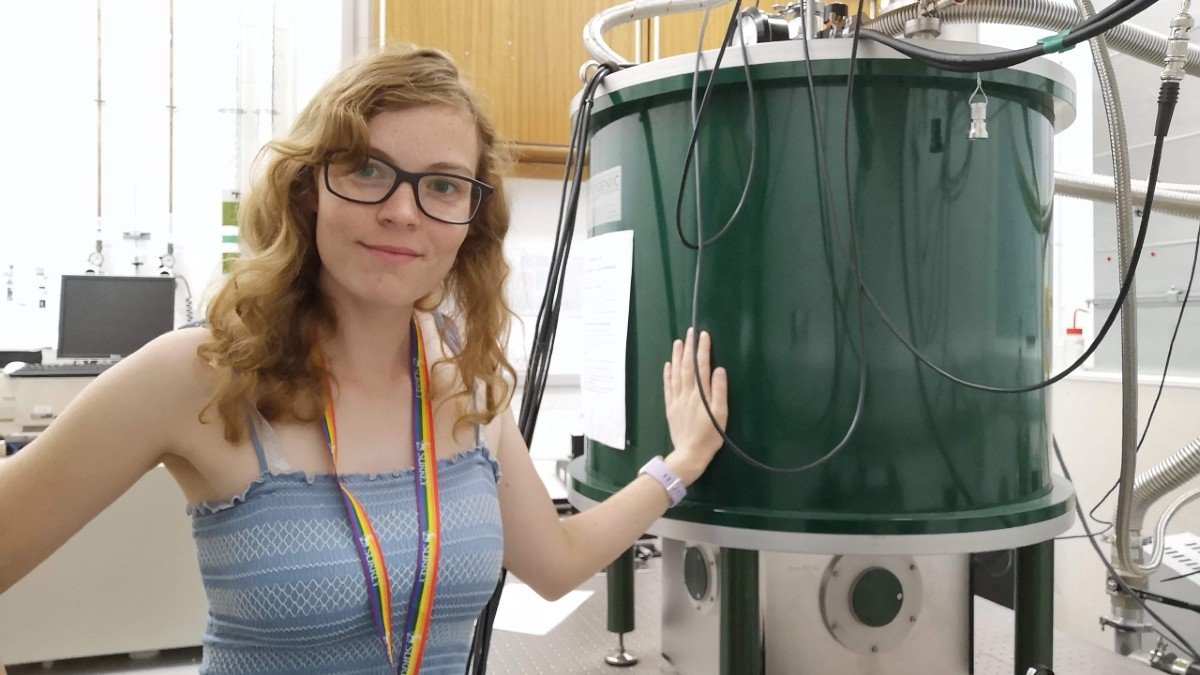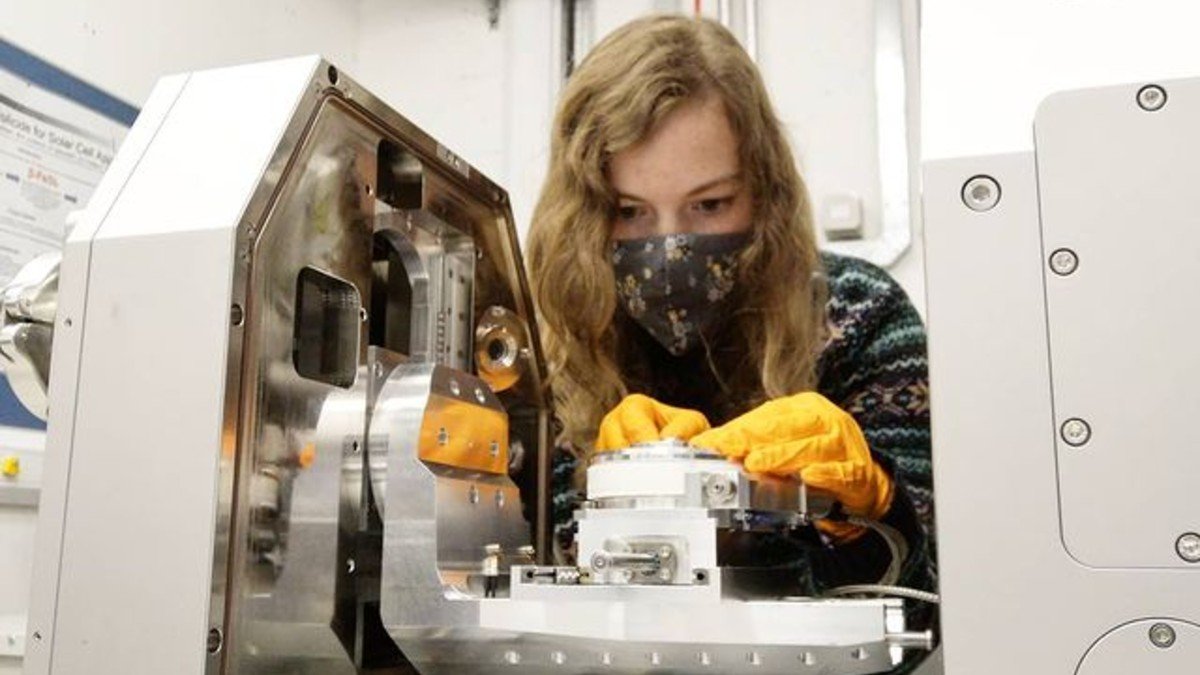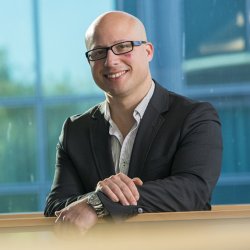Surrey researcher nominated as UK PhD Student of the Year
Daisy Shearer, an experimental physicist conducting research at our Advanced Technology Institute (ATI), has been shortlisted as the UK PhD Student of the Year.

"It would be amazing to win the award and be recognised for my work in the field of semiconductor spintronics," says Daisy
This national award, run by FindAMasters.com and FindAPhD.com, attracted a high-calibre field of 270 nominations. The judging panel then had the difficult task of whittling this down to a final eight.
But Daisy, who alongside researching experimental physics is a passionate campaigner for neurodiversity in science, technology, engineering and mathematics (STEM) subjects, made it through.
PhD Student of the Year
“I was nominated by a colleague in April, then I got the email confirming I’d been shortlisted when I was working in the ATI in early May,” says Daisy. “It would be amazing to win the award and be recognised for my work in the field of semiconductor spintronics, and in supporting other students at postgraduate and undergraduate level.
“Even being shortlisted is amazing. I’m delighted to be in such good company.”
That company, also competing for the first prize of £500 and the PhD Student of the Year title, involves entrants from Oxford, Cambridge and Imperial College London. Daisy will find out whether she’s won at an online ceremony, which supporters can follow, on Monday 7 June.
This, however, isn’t the only accolade she’s in the running for…
Institute of Physics honours

"I’m embracing my autistic mind to do great research," says Daisy, here working with the Focused Ion Beam Microscope
Daisy’s chasing a double distinction in 2021 as she’s also been nominated as a finalist for an Institute of Physics (IOP) Early Career Communicators Award.
She continues: “This year, the IOP Physics Communicators group asked for submissions of 500-word essays. These were about 'Your exploration of physics and how it’s changed you or those around you' to fit in with their Limit Less campaign.
“I wrote about how physics keeps me grounded and how I’m embracing my autistic mind to do great research. They chose 40 essays that will be published on the IOP website, then selected the best of those to go forward to the final.
“Mine was one of the four that were chosen.
“So I’ll be doing a ten-minute presentation and a five-minute Q&A. I'll be talking about my physics science communication work online and through STEM ambassador events. I’ll also be discussing my neurodiversity and disability work within STEM, and how I raise awareness about making STEM more accessible for neurodivergent people.
“Science communication is my hobby and something I devote a lot of time to. I’m passionate about it. It’s incredibly important that scientists communicate their work to the public. Being recognised for this and my neurodiversity advocacy within STEM would mean the world to me.”
The winner of the award will get a £250 prize as well as recognition on the IOP Physics Communicators award page.
The final and awards ceremony is on Tuesday 29 June and supporters can follow Daisy at the event online.
The future
These success aren’t distracting Daisy from the day job, though.
“I’m currently focused on doing my research and publishing some of the results of my PhD so far,” she adds. “If everything goes to plan, I hope to defend my thesis and graduate some time next year.
“After this, I aim to continue my work as a physics researcher in the quantum technology field. I’ll also keep exploring science communication and education using online media.”
Professor Justin Read, Head of our Department of Physics, is in no doubt that Daisy’s research and career will carry on blooming.
“We’re incredibly proud to have Daisy working with us in Surrey for her PhD programme,” says Justin. “Alongside her outstanding academic work developing new fabrication techniques for novel devices, she’s been a tireless champion for equality, diversity and inclusion in physics. She set up the Neurodivergent in STEM project and The Quantum Garden, among many other initiatives.
“Daisy’s an excellent candidate for these awards and I have no doubt she’ll continue to grow from strength to strength.”
Learn more about PhD research in our Department of Physics and at our Advanced Technology Institute.
Follow Daisy’s progress in the PhD Student of the Year and the Institute of Physics awards.

